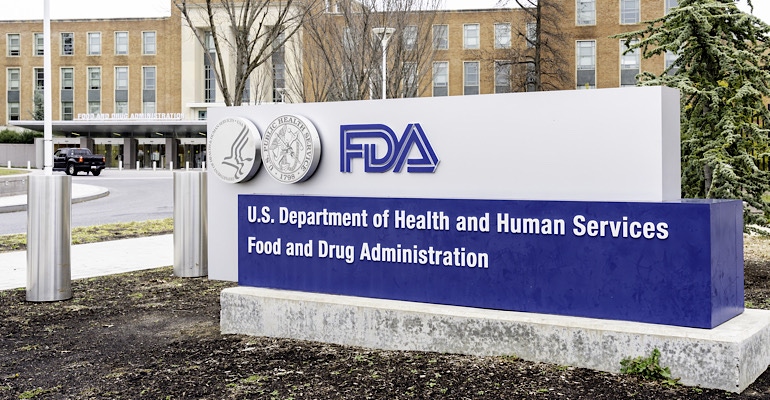Trump Administration Nixes FDA’s Ability to Regulate Laboratory-Developed Tests
The move comes as FDA has put a potential pause on an EUA for convalescent plasma – a therapy President Trump has championed - to treat COVID-19.
August 21, 2020

Laboratory-developed tests (LDT) will no longer be regulated by FDA, based on a new policy from the Trump administration. This has tremendous implications for laboratory-developed COVID-19 tests.
The Department of Health and Human Services added more detail about the policy on its website last Wednesday. The posting said that “the department has determined FDA will not require premarket review of laboratory-developed tests absent notice-and-comment rulemaking, as opposed to through guidance documents, compliance manuals, website statements, or other informal issuances.”
The posting goes on to say that “those seeking approval or clearance of, or an emergency use authorization for an LDT may nonetheless voluntarily submit a premarket approval application, premarket notification or an EUA request, respectively, but are not required to do so, and FDA will adjudicate those submissions.”
HHS noted in its posting those with an active EUA to use an LDT to detect the virus causing COVID-19 or its antibodies are unaffected by this announcement.
According to FDA’s website, the agency has given EUA to about 35 molecular-based laboratory-developed tests for the virus that causes COVID-19. The website also shows the agency has doled-out about 141 EUA’s to companies and entities that developed individual molecular diagnostic tests for SARS-CoV-2.
In its posting HHS said the decision is to help safeguard the American people "against future pandemics, and to keeping duplicative regulations and unnecessary policies from interfering with those efforts."
Scott Whitaker, president and CEO of AdvaMed, a med device advocacy weighed in on the policy.
In an emailed statement Whitaker said, "During the current public health emergency, the IVD industry has shipped more than 120 million high-quality, molecular COVID tests to laboratories across the country, with capacity to provide 100 million high-quality serology/antibody tests per month, while point-of-care molecular and antigen tests in every state are providing results to patients in minutes, wherever they seek care. And more laboratory and point-of-care tests are coming. Many of our laboratory partners have amplified this with their own tests that have been validated by FDA."
Whitaker added, "We encourage the Administration to ensure all diagnostic test developers, of both IVDs and LDTs, are subject to the same standard of test validation during the pandemic and beyond to protect patients and public health. Strategic testing of symptomatic patients and broad screening of asymptomatic individuals are critical to managing the pandemic, and the tests that guide our response should have the confidence of both patients and the public."
“During the current public health emergency, the IVD industry has shipped more than 120 million high-quality, molecular COVID tests to laboratories across the country, with capacity to provide 100 million high-quality serology/antibody tests per month, while point-of-care molecular and antigen tests in every state are providing results to patients in minutes, wherever they seek care. And more laboratory and point-of-care tests are coming. Many of our laboratory partners have amplified this with their own tests that have been validated by FDA.
“We encourage the Administration to ensure all diagnostic test developers, of both IVDs and LDTs, are subject to the same standard of test validation during the pandemic and beyond to protect patients and public health. Strategic testing of symptomatic patients and broad screening of asymptomatic individuals are critical to managing the pandemic, and the tests that guide our response should have the confidence of both patients and the public.
The change in policy has caused intense disagreement between both FDA Commissioner Stephen Hahn and HHS Secretary Alex Azar, according to a report from The Washington Post. The Post’s report also said the policy came as a shock to may at FDA.
Tensions Rising?
The tension between the Trump administration and FDA has been brewing.
Last week, Peter Marks, director of FDA’s Center of Biologics Evaluation and Research said he would step down if the Trump administration moved to approve a COVID-19 vaccine that isn’t safe according to a report from Reuters.
Marks said in an interview with Reuters that he has not faced any political pressure yet, but if he did that would be his “redline” and that he would “feel obligated” to resign.
Tensions were brought to the forefront during a Wednesday White House Press Briefing when a reporter asked the President about FDA putting a potential pause on EUA for convalescent plasma to treat COVID-19.
The theory is that people who have been afflicted with COVID-19 that have recovered will have antibodies in the blood that helped fight off the infection. The thought is that if people who are sick with the virus are given this plasma they could recover.
“I hear great things about [convalescent plasma] … that’s all I can tell you,” Trump said during the Wednesday press conference. “It could be a political decision because you have a lot of people over there that don’t want to rush things because they want to do it after Nov. 3 [Election Day] and you’ve heard that one before. But I’ve heard fantastic things about convalescent plasma, and I’ve heard numbers way over 50% success.”
About the Author(s)
You May Also Like



.png?width=300&auto=webp&quality=80&disable=upscale)
